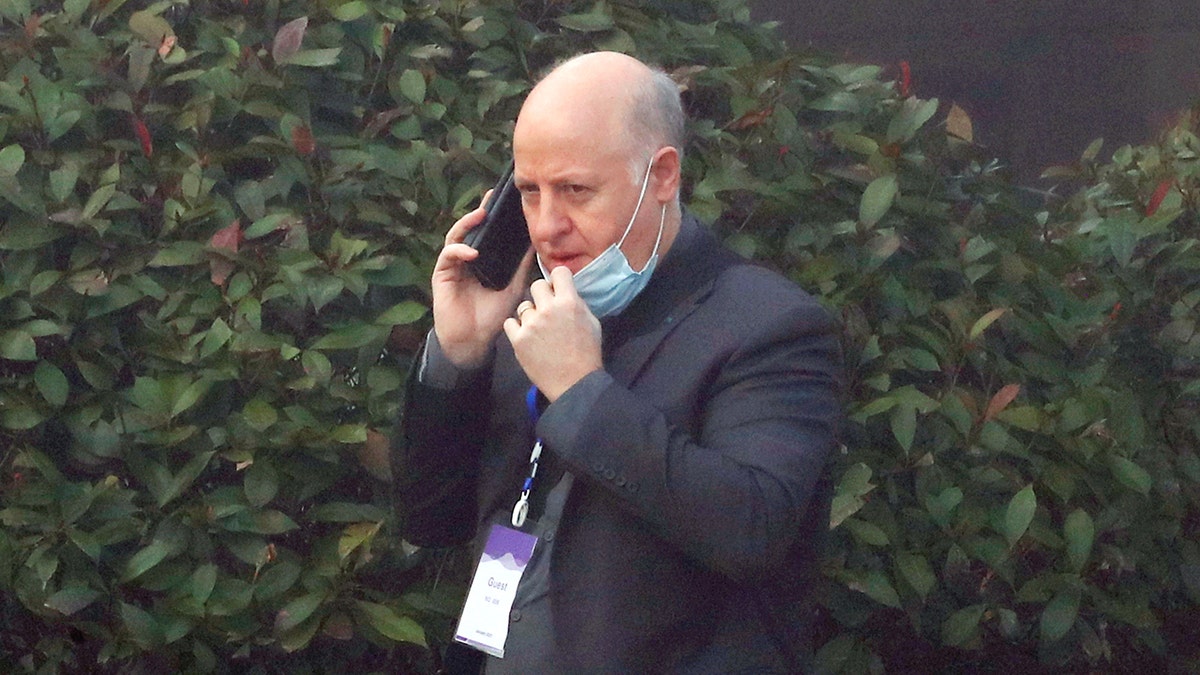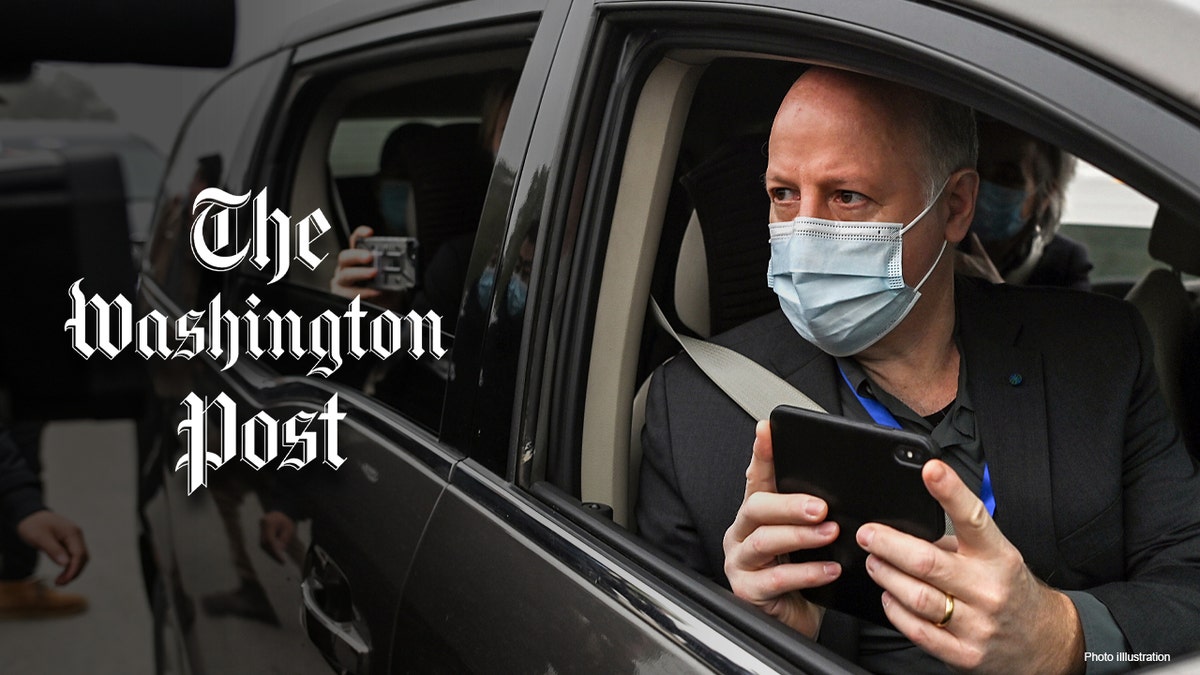Media top headlines December 17
In media news today, NBC anchors hit Nancy Pelosi for comment on lawmakers trading stocks, Elon Musk fires back at MSNBC's Joy Reid, and an Athiest Washington Post columnist says she would 'feel nothing' if her mother aborted her.
The editor of a British medical journal that published a Wuhan lab-linked scientist's letter disparaging coronavirus lab-leak theories said it took more than a year to get him to admit his conflict of interest.
The Lancet editor Dr. Richard Horton testified before Parliament members Wednesday about the letter signed by EcoHealth Alliance president Dr. Peter Daszak – whose nonprofit has funded coronavirus research at the Wuhan Institute of Virology for years – that "strongly condemn[ed] conspiracy theories suggesting that COVID-19 does not have a natural origin."
The letter, organized by Daszak and published in February 2020 with 26 other signers, was widely cited in media reports to knock down suggestions that COVID-19 may not have originated in nature but rather could be linked to the Wuhan Institute of Virology, where bat coronavirus research was conducted and proximate to where the deadly virus first broke out. The signers claimed they had "no competing interests."
MEDIA FACT-CHECKERS, FACEBOOK CITED WUHAN LAB-LINKED SCIENTIST TO KNOCK DOWN LAB LEAK THEORY

FILE PHOTO: Peter Daszak, a member of the World Health Organization (WHO) team tasked with investigating the origins of the coronavirus disease (COVID-19), uses his mobile phone at a hotel in Wuhan, Hubei province, China February 3, 2021.
But it took until June – 16 months after the letter was first published – for Daszak to expand on his "disclosure statements," where he discussed his organization's work with the Wuhan lab. EcoHealth Alliance sent millions in grant money from the National Institutes of Health to the lab, which some leading voices like former Centers for Disease Control and Prevention Director Dr. Robert Redfield believe is the origin of the virus.
"A hundred percent, I completely agree, the information that we published in June as an addendum should definitely have been included in the February letter," Horton told Parliament members, according to The Daily Mail.
He said the magazine had a debate with Daszak about whether he had a competing interest, to which Daszak told him that he was a bat coronavirus expert and should be listened to on the issue.
WAPO CALLS FOR ANSWERS ON WUHAN LAB RESEARCH AFTER CALLING PAST QUESTIONS ‘FRINGE’ THEORIES
"It took us over a year to persuade him to declare his full competing interest, which we eventually did in June of this year," Horton said.
Four of the other signers of the letter also worked for EcoHealth Alliance, the Mail reported. The Science and Technology Select Committee is investigating the virus' origins.
In spite of his conflict of interest, Daszak was cited in multiple stories and "fact-checks" decrying the lab-leak theory, including the Washington Post, NBC News, CBS' "60 Minutes" and others. He also was cited by Chinese state media saying there was "absolutely no evidence" for it.

Peter Daszak, a member of the World Health Organization (WHO) team investigating the origins of the COVID-19 coronavirus, was cited in a Washington Post fact-check last year casting doubt on the lab-leak theory. (Photo by Hector RETAMAL / AFP) (Photo by HECTOR RETAMAL/AFP via Getty Images) (Photo by HECTOR RETAMAL/AFP via Getty Images)
For much of 2020, the notion that coronavirus leaked from a Wuhan lab was labeled a "fringe" and "conspiracy" notion by major news outlets, including in a now-corrected report from the Washington Post that declared Sen. Tom Cotton, R-Ark., kept repeating a "debunked" conspiracy theory.
REPORTERS ADMIT DISMISSING WUHAN LAB LEAK THEORY IN PART BECAUSE REPUBLICANS PROPOSED IT
The Post reported in 2020, however, that the U.S. State Department warned in 2018 of inadequate safety measures at the Wuhan Institute of Virology, where bat coronavirus experiments were taking place.
Daszak was also cited by Facebook fact-checking partner Science Feedback in a February 2020 post headlined, "Scientific evidence indicates virus that causes COVID-19 infection is of natural origin, not the result of human engineering."
There is still no conclusive evidence about the origin of the virus that has killed millions around the world, but the notion that the lab-leak theory was hogwash has proven to be yet another premature media narrative. Circumstantial evidence of and support for the lab-leak theory has only grown over time, although there are still leading scientists who believe the animal origin theory is the most likely. The Lancet letter was a clear, early influence on media and Big Tech's approach to the discussion around the virus.
CLICK HERE TO GET THE FOX NEWS APP
Chinese government secrecy, the astonishing transmissibility of the virus, risky "gain of function" research at the lab, and the reported illness of Wuhan lab researchers with COVID-like symptoms shortly before the virus rocketed around the world have all contributed to the lab-leak hypothesis.
Dr. Alina Chan, a Harvard scientist, told Parliament on Wednesday the lab leak theory was "more likely than not."
"We have heard from many top virologists that a genetically engineered origin is reasonable and that includes virologists who made modifications to the first SARS virus," she said.
The Lancet published an article in September calling for an "objective" and "transparent" debate about the true origins of the SARS-CoV-2 virus, more than a year and a half after the article disparaging anything challenging the natural origin hypothesis a conspiracy theory.
Fox News' Jessica Chasmar contributed to this report.










































